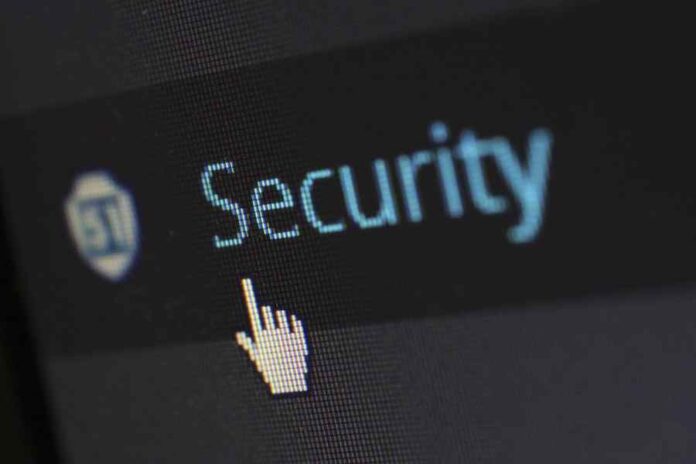In today’s interconnected and digital world, cybersecurity has become a critical concern for individuals and organizations alike. With cyber threats constantly evolving, the need for skilled professionals who can protect digital assets has never been higher. One way to enter this dynamic field and bolster your career prospects is by obtaining a cybersecurity certificate. These certificates are not only a testament to your knowledge and expertise but also a gateway to a multitude of exciting and lucrative career opportunities. In this article, we will explore the diverse paths you can pursue with a cybersecurity certificate and the benefits it can offer.
What Can I Do With A Cybersecurity Certificate?
A cybersecurity certificate opens doors to various careers, including roles like cybersecurity analyst, network security administrator, ethical hacker, and more. It enhances job prospects, increases earning potential, and provides opportunities to combat cyber threats across different industries, making it a valuable investment for anyone interested in cybersecurity.
Importance Of Cybersecurity In The Digital Age
In the digital age, the importance of cybersecurity cannot be overstated. We live in a world where almost every aspect of our personal and professional lives is connected to the Internet. From online banking and healthcare records to critical infrastructure and government systems, our reliance on digital technology has grown exponentially. With this dependence comes the increased vulnerability to cyber threats.
First and foremost, cybersecurity is crucial for protecting sensitive data. Whether it’s our financial information, personal details, or confidential business data, unauthorized access can lead to devastating consequences, including identity theft, financial loss, and corporate espionage. Cybersecurity measures such as encryption, access controls, and firewalls serve as the first line of defense against these threats.
Moreover, the interconnected nature of the digital world means that a breach in one system can have a domino effect, affecting not just individuals but entire organizations and even nations. The risk of cyberattacks on critical infrastructure, such as power grids and water supply systems, poses a significant threat to public safety and national security. Hence, the importance of robust cybersecurity practices extends beyond personal interests to societal well-being and even international stability.
In the business world, cybersecurity is essential for maintaining customer trust. A data breach can erode consumer confidence and lead to reputational damage that may take years to repair. Companies that invest in cybersecurity not only protect their bottom line but also demonstrate their commitment to safeguarding customer information. This, in turn, can become a competitive advantage in an increasingly data-conscious marketplace.
How To Earn A Cybersecurity Certificate?
Earning a cybersecurity certificate typically involves several steps, including education, preparation, and examination. Here’s a general guide on how to earn a cybersecurity certificate:
- Determine Your Goals: Identify the specific cybersecurity certification(s) you want to pursue. Popular options include CompTIA Security+, Certified Information Systems Security Professional (CISSP), Certified Ethical Hacker (CEH), and more.
- Prerequisites and Requirements: Review the prerequisites and requirements for the certification you’re interested in. Some certifications may require prior experience, education, or other qualifications.
- Select Study Resources: Acquire study materials such as textbooks, online courses, practice exams, and study guides. Many certification providers offer official study resources.
- Enroll in Training: Consider enrolling in formal training programs offered by authorized training providers or institutions. These programs provide structured learning and often include hands-on labs.
- Self-Study: If you prefer a self-paced approach, study independently using books, online courses, and other available resources. Create a study schedule to stay on track.
- Hands-On Practice: Gain practical experience by setting up a lab environment and applying the knowledge you’ve acquired. Hands-on experience is crucial for many cybersecurity certifications.
- Exam Registration: Register for the certification exam through the official certification body’s website. Pay the exam fee, and schedule your exam at a testing center or for online proctoring, depending on the certification.
- Exam Preparation: Continue to review and practice exam objectives. Take practice tests to assess your readiness and identify areas that need improvement.
- Take the Exam: On the scheduled date, take the certification exam. Be sure to arrive at the testing center with appropriate identification and any required materials
- Passing the Exam: If you pass the exam, you’ll receive your certification. Some certifications provide immediate results, while others may require you to wait for official confirmation.
- Certification Maintenance: Many cybersecurity certifications require you to maintain your certification by earning continuing education credits or retaking the exam periodically. Be aware of the maintenance requirements and plan accordingly.
- Apply Your Certification: Use your cybersecurity certification to enhance your career opportunities. Update your resume and LinkedIn profile to showcase your accomplishments.
- Stay Informed: The field of cybersecurity is constantly evolving. Stay informed about the latest trends, threats, and best practices by participating in webinars, attending conferences, and joining online communities.
Benefits Of Holding A Cybersecurity Certificate
Holding a cybersecurity certificate offers a range of benefits, both for individuals and organizations. Here are some of the key advantages:
- Enhanced Career Opportunities: Cybersecurity certificates validate your expertise and make you more attractive to employers. They open doors to a wide range of cybersecurity roles, such as cybersecurity analyst, penetration tester, and security consultant.
- Increased Earning Potential: Certified cybersecurity professionals often command higher salaries than their non-certified counterparts. The specialized knowledge and skills acquired through certification can lead to better-paying job offers.
- Job Security: As cyber threats continue to evolve, organizations place a premium on cybersecurity expertise. Holding a cybersecurity certificate can provide job security, as these skills are consistently in demand.
- Global Recognition: Many cybersecurity certifications are recognized internationally, making it easier to pursue job opportunities and career growth in different regions and countries.
- Demonstrated Competence: Certificates serve as tangible proof of your competence and dedication to the field. They provide assurance to employers that you possess the skills and knowledge needed to protect their digital assets.
Tips For Getting The Right Certification For Your Goals
Selecting the right cybersecurity certification that aligns with your career goals and aspirations is crucial. Here are some tips to help you choose the certification that suits you best:
- Define Your Career Goals: Start by clearly defining your career objectives. Determine the specific role or specialization within cybersecurity that interests you, such as ethical hacking, network security, or risk management.
- Research the Certifications: Conduct thorough research on different cybersecurity certifications. Understand the focus, prerequisites, and requirements of each certification. Look into industry recognition and demand for the specific certification.
- Assess Your Skill Level: Evaluate your existing knowledge and skills. Some certifications are entry-level, while others are more advanced. Choose a certification that matches your current skill level and experience.
- Consider Prerequisites: Check the prerequisites for each certification. Ensure you meet the educational and experience requirements before pursuing a particular certification. Some certifications may require a foundational certificate as a prerequisite.
- Talk to Industry Professionals: Seek advice from professionals in the cybersecurity field or mentors who have experience with certifications. They can offer insights into which certifications are most relevant and valuable in your desired career path.
- Review Exam Objectives: Examine the exam objectives and content for the certification you’re interested in. Make sure the topics align with your career goals and interests.
- Check Certification Providers: Different certification providers have varying levels of recognition and credibility. Research the reputation of the organization that offers the certification and ensure it is respected in the industry.
- Consider Career Trajectories: Some certifications serve as stepping stones to more advanced certifications. Consider the long-term trajectory of your career and whether the chosen certification aligns with your future goals.
Final Word
Choosing the right cybersecurity certification is a pivotal step toward a successful career in this dynamic field. By defining your goals, researching options, and considering industry demands, you can make an informed choice that aligns with your aspirations. Certification not only validates your expertise but also opens doors to a world of opportunities, contributing to your professional growth and the ever-important task of safeguarding our digital world.
FAQ’s
- What Is The Most Recognized Cybersecurity Certification?
CISSP (Certified Information Systems Security Professional) is widely recognized as one of the most prestigious certifications in the cybersecurity field.
- How Long Does It Take To Prepare For A Cybersecurity Certification Exam?
Preparation times vary, but it typically takes several months of study and practice to prepare for most cybersecurity certification exams.
- Do I Need Prior Experience To Pursue A Cybersecurity Certification?
Some certifications have experience prerequisites, but there are entry-level certifications like CompTIA Security+ that require no prior experience.
- Are Cybersecurity Certifications Worth The Investment?
Yes, cybersecurity certifications are worth the investment as they enhance career prospects, increase earning potential, and validate your expertise in a high-demand field.
- Do Certifications Expire, And How Can I Maintain Them?
Many certifications require periodic renewal through continuing education or retaking the exam. Review the specific certification’s maintenance requirements to ensure compliance.





